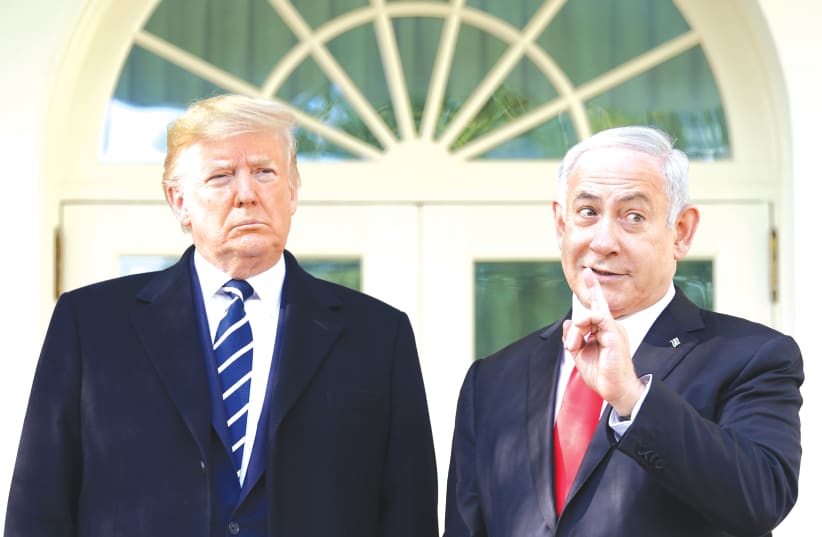Half of Israelis: Trump plan intended to help Netanyahu win
Poll finds that the prime minister's probe is the top voting issue, and that more than two-thirds think Election Day should only be considered a vacation day for people who can prove that they voted.
